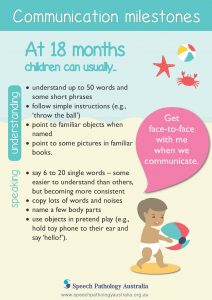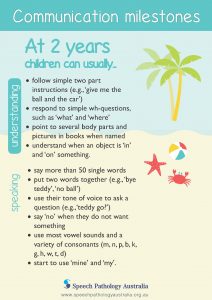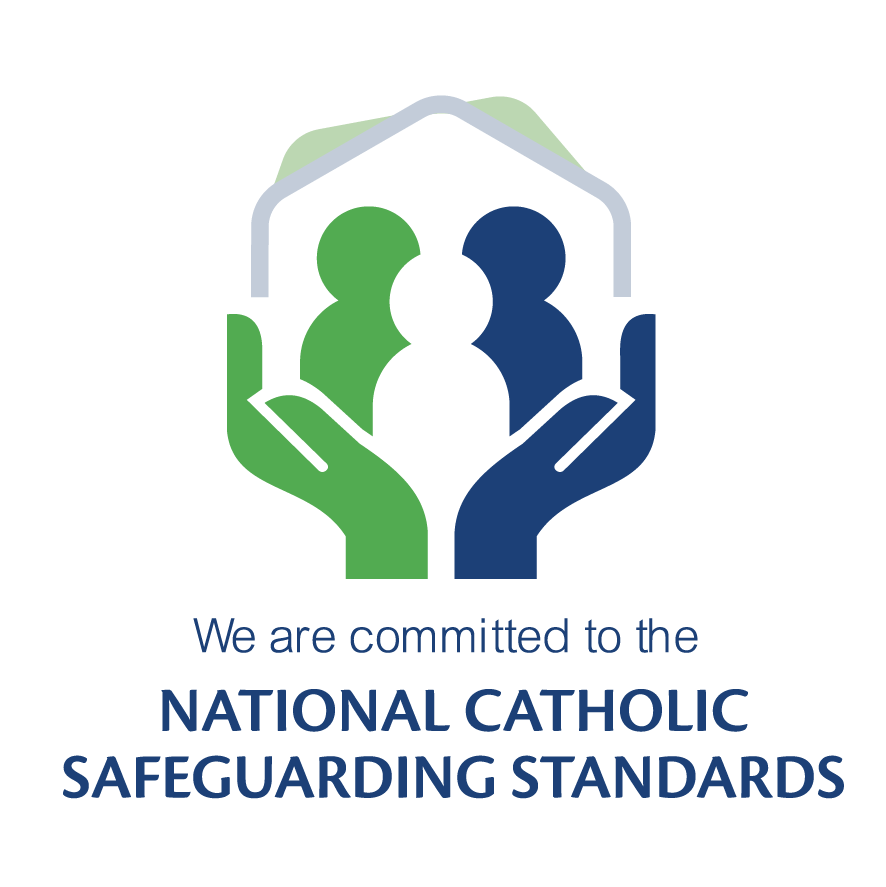Catholic Education Services offer a range of student services in the areas of therapy and disability. The following are Speech Pathology awareness events taking place in 2017, and information on Speech Pathology and its role in our schools.
Communication Milestones
No Pens Day Wednesday
October 2018
No Pens Day Wednesday encourages schools and settings to put down their pens and to run a day of speaking and listening activities. This initiative is run by The Communication Trust: Every Child Understood. It’s free to sign up and all the resources and lesson plans are provided at the click of a button.
Ask your school if they are participating this October!
Have a watch of this video to hear some testimonials from teachers and deputy’s after running it in their schools. www.youtube.com/watch?time_continue=66&v=33eEyLhXpWQ
For more information, head to The Communication Trust website www.thecommunicationtrust.org.uk/projects/no-pens-day-wednesday/
Speech Pathology Week
19-25 August, 2018
Speech Pathology Week seeks to promote the speech pathology profession and the work done by speech pathologists with more than 1.1 million Australians who have a communication or swallowing disorder that impacts on their daily life.
Communication is a basic human right and Speech Pathology Week seeks to promote this fact.
The theme for Speech Pathology Week in 2018 is: Communication access is communication for all!
This theme draws on one of the eight key aspirations from the Speech Pathology 2030 project, while reinforcing the important role that speech pathologists play in the lives of Australians with speech and swallowing difficulties.
Tips for successful communication*
The following are a range of tips for successful communication; refer to the Speech Pathology Australia website for more:
- Always treat the person with the communication disability with dignity and respect
- Be welcoming and friendly
- Understand there are many ways to communicate (e.g. sign language, gesture, body language, writing, language boards, visuals…)
- Avoid loud locations, find a quiet place
- Listen carefully
- If you ask a question, wait for the person to reply
- Allow the person time to respond, so always be patient
- Speak directly to the person and make eye contact. (Though be mindful that there are some people who may not want you to look at them, e.g. some people with autism spectrum disorder)
- Speak normally. There is no need for you to raise your voice or slow your speech.
*Source: Adapted from SCOPE, Communication for All Booklet, www. http://www.scopeaust.org.au
Help promote Speech Pathology Week through social media. Where appropriate, remember to include the Association’s handle @SpeechPathAus and/or the hashtag #SPweek
For more information refer to the Speech Pathology Australia website http://www.speechpathologyaustralia.org.au or chat to a speech language pathologist today!
Speech pathology services in our schools
Catholic Education Services has Speech Language Pathologists who work across the 29 schools and colleges in the Cairns Diocese. They are; Lauren Hamill, Chanelle Chate, Tenille Bellamy and Amanda Carlone.
Please see the Speech Pathology Brochure for further information and contact details. (the same one that is on the specialist support services page)
About Speech Pathology Australia (SPA)
Speech Pathology Australia is the national professional association for speech pathologists in Australia. The Association supports and regulates the ethical, clinical and professional standards of the profession, as well as lobbying and advocating for access to services that benefit people with communication and swallowing difficulties. Membership is open to applicants who meet the Association’s eligibility requirements. The Association is recognised by government as the professional body representing speech pathologists in Australia.
1/114 William Street, Melbourne Victoria
Tel: 1300 368 835
Swallowing Awareness Day
March 2018
People who have trouble swallowing are at risk of choking, poor nutrition and dehydration, while babies and children with difficulty feeding may not take in enough nutrients to support growth and brain development.
Speech pathologists are the professionals who assess and treat people across the lifespan with dysphagia (difficulty swallowing).
To find a speech pathologist near you go to www.speechpathologyaustralia.org.au
Did you know you swallow at least 900 times a day?
- Three times an hour whilst you are asleep
- Once per minute while awake
- Several times during meals
Around one million Australians have a swallowing difficulty (dysphagia). Swallowing problems can occur at any stage of life. However, the knowledge of dysphagia and its implications remain largely unknown for most Australians.
Swallowing Awareness Day is an opportunity to bring attention to swallowing disorders and to connect people with speech pathologists, the professionals who can help.
(Information adapted from Speech Pathology Australia)
Learn more about Swallowing Awareness Day
Communication is a basic human right
Each year Speech Pathology Australia hosts Speech Pathology Week to make Australians aware of those in our community who have a communication or swallowing difficulty.
More than 1.1 million Australians have a communication or swallowing difficulty that impacts on their quality of life. Every day speech pathologists are creating futures by changing lives for Australians with communication and swallowing difficulties.
The Communication Bill of Rights clearly demonstrates that each and every person has the right to communicate. For more information: http://www.scopevic.org.au/communication-access-in-print/
During Speech Pathology Week give a voice to those who have a communication and swallowing difficulty. Join the conversation on social media by using #SPweek
Learn more about Speech Pathology Week
Information on Speech Pathology
Find a speech pathologist?
You do not need a referral to see a speech pathologist (outside of an educational setting). To find a speech pathologist, speak with your GP or child health nurse, or use the
Find a Speech Pathologist search on the Speech Pathology Australia website: www.speechpathologyaustralia.org.au/find
Things to do
Check the progress of your child’s language development. Head on over to Talking Point and take their 5-minute questionnaire.
Trying to get the man of the house involved in speech therapy? Here are some tips on getting him excited about learning with your child!
Further reading
Independence is the key to being ready for kindy
Managing Transitions: A guide to handling change
The importance of reading to your children
These articles with thanks to PakMag Cairns.


















